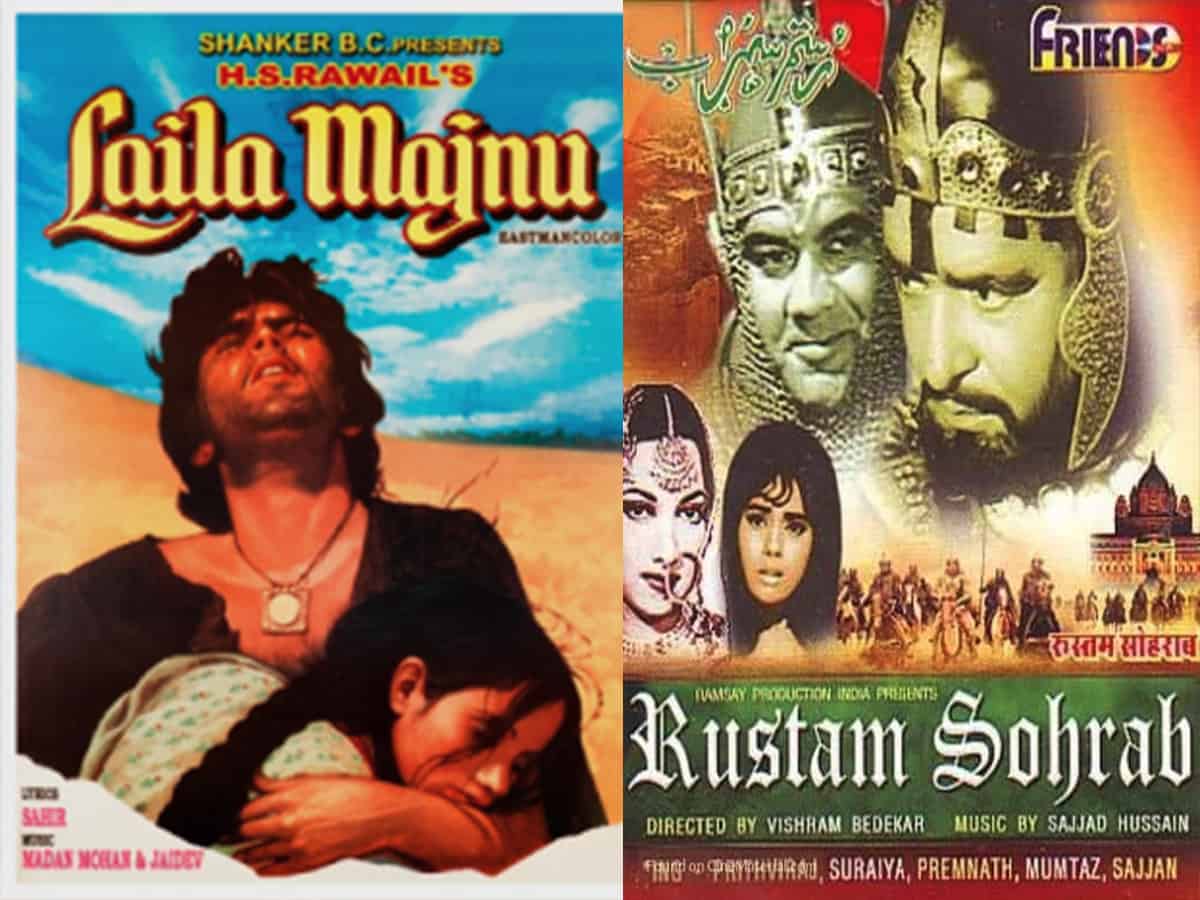
As we all know, India and the Indian subcontinent in general, is a land of stories. There are innumerable tales that we have heard from childhood and the remarkable thing is that in many cases the stories have been absorbed into Indian heritage from foreign realms. For example the stories of Arabian Nights and fables from central Asia and Afghanistan have been so widely retold that almost every child in India has heard about them.
The magic of the Arabian Nights have influenced not just the literature of India but also the western world. There are references to the Arabian Nights in renowned works of English literature. Authors such as Henry Fielding, Walter Scott, Alfred Tennyson, William Wordsworth and Rudyard Kipling to name only a few, have referred to these tales in their own works. In France Alexandre Dumas (author of The Three Musketeers) made references to the stories and so did Alexander Pushkin and Leo Tolstoy in Russia. In 1845 American writer Edgar Allan Poe wrote a story titled “The 1002nd Tale of Scheherazade.”
In India, Hindi films have played a key role in integrating the attraction of these tales into the Indian milieu and ambience. Some of the most popular tales are those of Ali Baba and The 40 Thieves, Laila Majnu, Rustum and Sohrab and Aladdin and his Magic Lamp.
In 1980 a film made with Indo-Soviet collaboration was launched titled “Ali Baba Aur 40 Chor”. It was directed by Uzbek director Latif Faiziyev and Indian director Umesh Mehra. The film starred Dharmendra, Hema Malini and Zeenat Aman along with Russian actors. The music was scored by R.D. Burman and not surprisingly, it became the most successful Indo-Soviet co-production, becoming a runaway blockbuster hit in both India and the Soviet Union.
But the story of Ali Baba is not popular only with the Hindi speaking audience. In the past there was a Telugu movie called Ali Baba 40 Dongalu which starred N.T. Rama Rao, the former Chief Minister of united Andhra Pradesh and Jayalalitha, former Chief Minister of Tamil Nadu. While NTR played the role of Ali Baba, Jayalalitha acted as Marjiana. Music was composed by the famous Ghantasala.
The story had been made into film in other Indian languages too. In 1973 a Bengali film titled Marjiana Abdulla turned out to be a huge hit. It had some very catchy songs and good music composed by Salil Choudhury, well known music director of the Hindi and Bengali film world. The songs and the slightly changed story was a hit with the Bengali audience.
The stories of Laila Majnu and Shirin Farhad came to India from abroad and are now as much a part of Indian storytelling as any other legend born on Indian soil.
The story of Laila Majnu (originally Layla Majnun) passed from Arabic to Persian then Turkish and finally Indian languages. The well known British poet Lord Byron referred to the narrative as the Romeo And Juliet story of the eastern hemisphere. It is said to have been first composed centuries ago by Persian poet Nizami Ganjavi as part of a much larger composition which is regarded as a masterpiece of Persian literature. But according to some scholars, the story existed in Persia in one form or another, even before Nizami wrote it down. It was part of oral folklore earlier.
The story of Laila and Majnu has been depicted in several Indian language films right from the 1920s. Perhaps the best known Indian film version was the 1976 release which starred Rishi Kapoor as Majnu, Ranjeeta Kaur as Laila and Danny Denzongpa as Prince Baksh. In this film too, the songs were excellent. The song “Husn Hazir Ho” by Lata Mangeshkar still rings in our ears while the others such as “Tere Dar Par Aaya Hoon” and ” Barbad-E-Mohabbat ki Dua” reached the top on the Binaca Geetmala annual lists in 1977.
The story of Rustom and Sohrab is a moving tale that can rival any of Shakespeare’s tragedies. It is part of a longer work “Shahnameh” by the famous Persian poet Ferdowsi. It is the story of a father (Rustom) and his son (Sohrab) who have not met because the son was born after Rustom had a brief relationship with a woman named Tahmina living in a foreign land. The first meeting occurs on a battlefield where both father and son are the most heroic figures in opposite camps.
The two, not knowing each other’s identity, become involved in a man-to-man combat and after a hard battle, Rustom breaks Sohrab’s back and stabs him. Before dying, Sohrab tells Rustom that his father will avenge his death and reveals that his father is the unbeatable Rustom. He also displays a memento that Rustom had given to his mother Tahmina. Hearing this, the father is shocked and deeply regretful. He realises that he has killed his own son. When Tahmina hears that Rustom has killed their son, she too passes away from grief.
The famous English poet and critic Mathew Arnold wrote a narrative poem based on the story and it became popular in English literature. In 1963 a Hindi film was produced by F.U. Ramsay titled Rustam Sohrab.
Prithviraj Kapoor the famous patriarch of the Kapoor family acted as Rustom and Prem Nath was Sohrab. Actress and playback singer Suraiya played the role of Tahmina. This was Suraiya’s last film and thereafter she gave up acting and singing. In her farewell appearance she left us with the immortal song Yeh Kaisi Ajab Dastan Ho Gayi which is regarded as one of her greatest hits. It has a beautiful and haunting melody.
Thanks to the efforts of our filmmakers and writers who have presented us with these tales from foreign lands, we have gained knowledge and understanding of many different cultures. The stories have enriched and enhanced our concept of the world that exists outside our own shores and yet are linked to us through many centuries of contact and mutual friendship.



